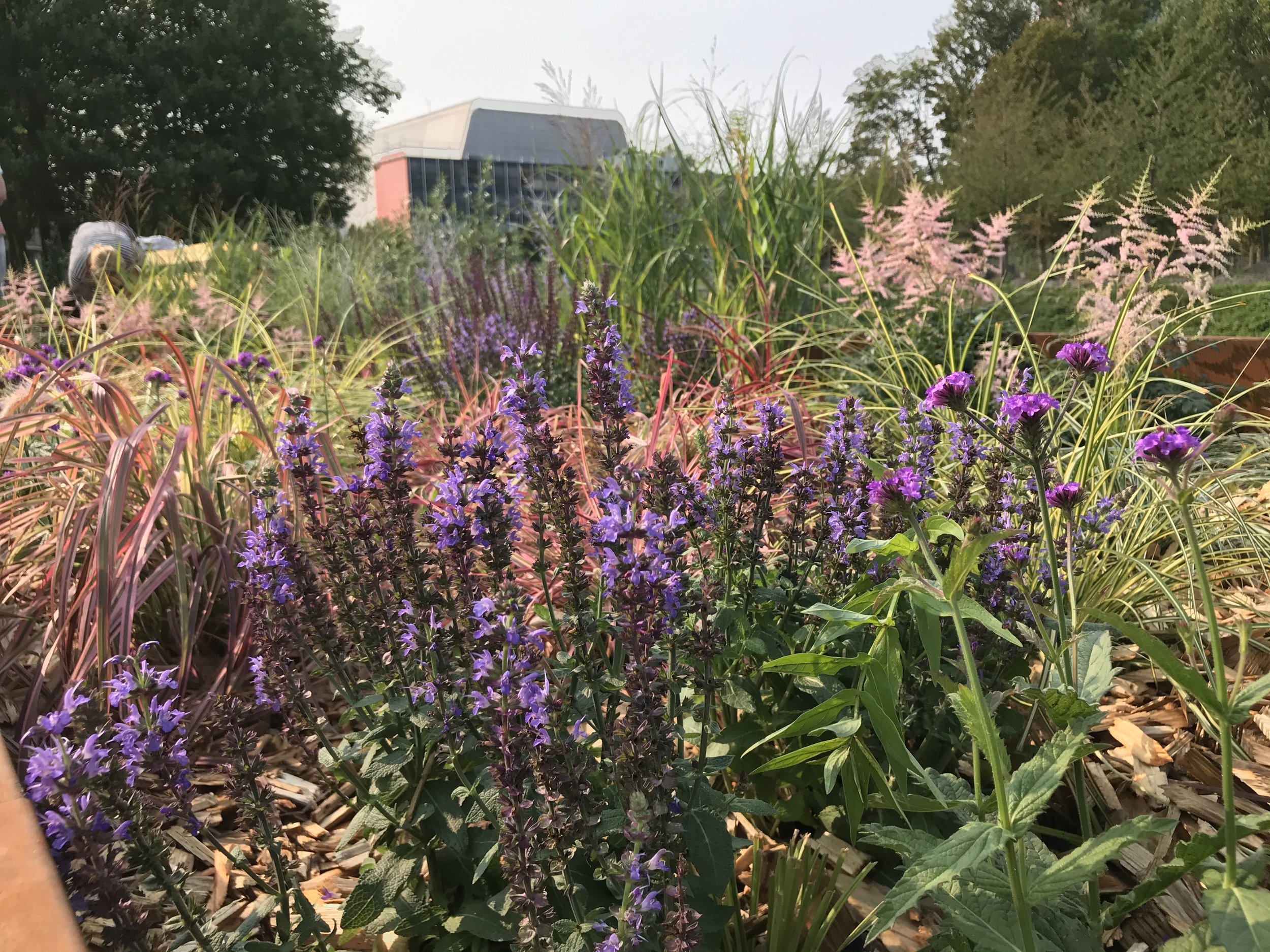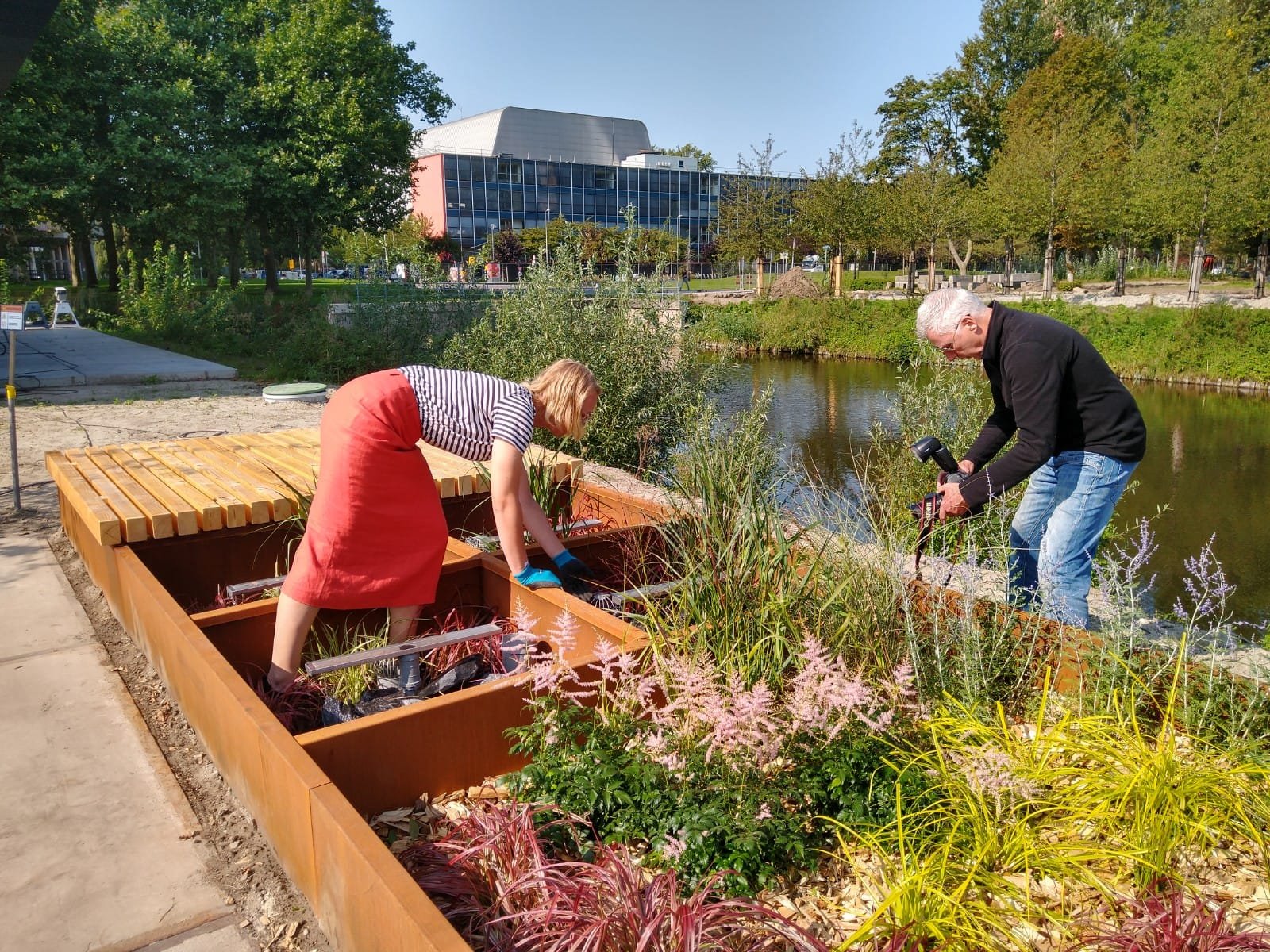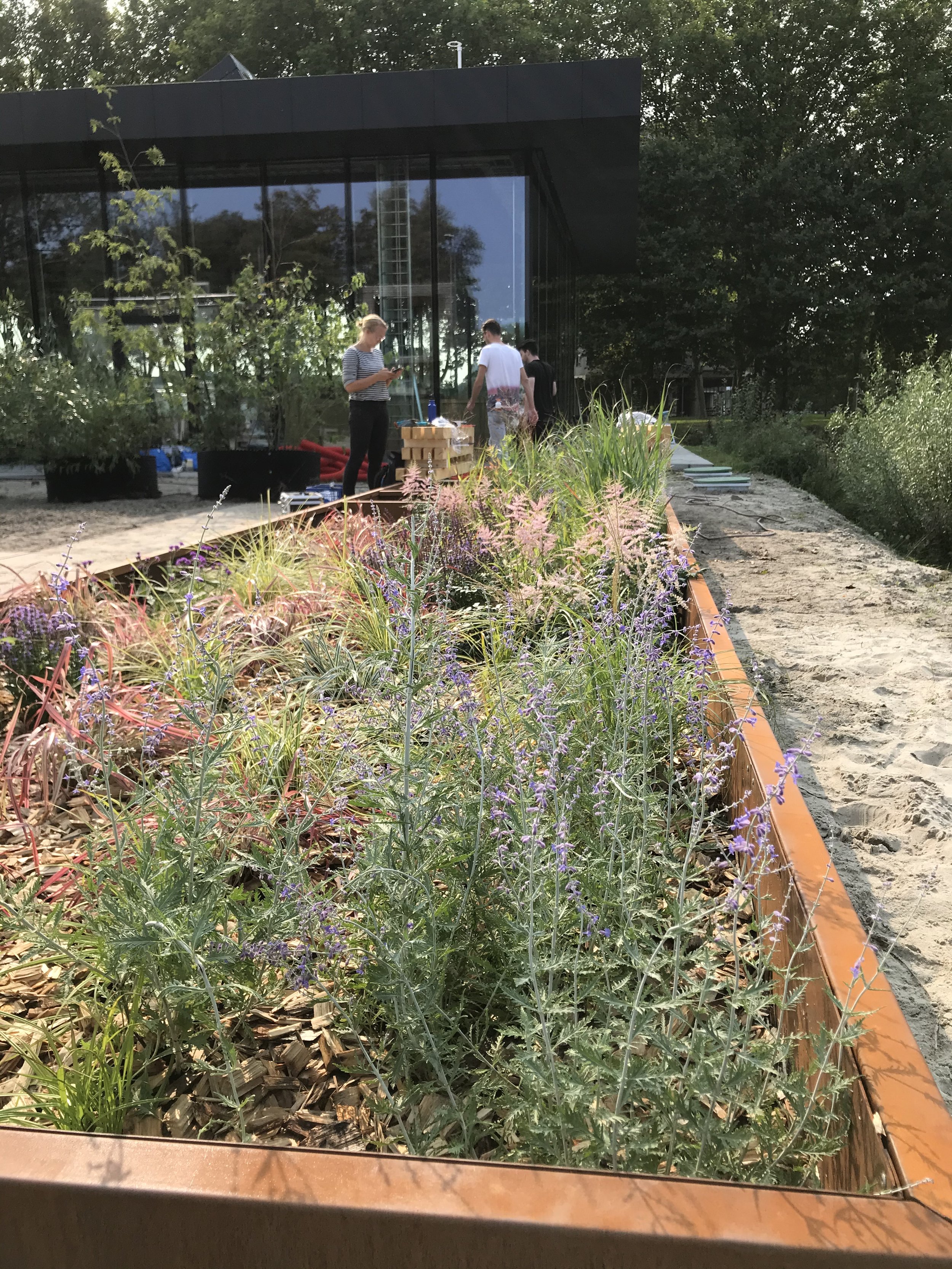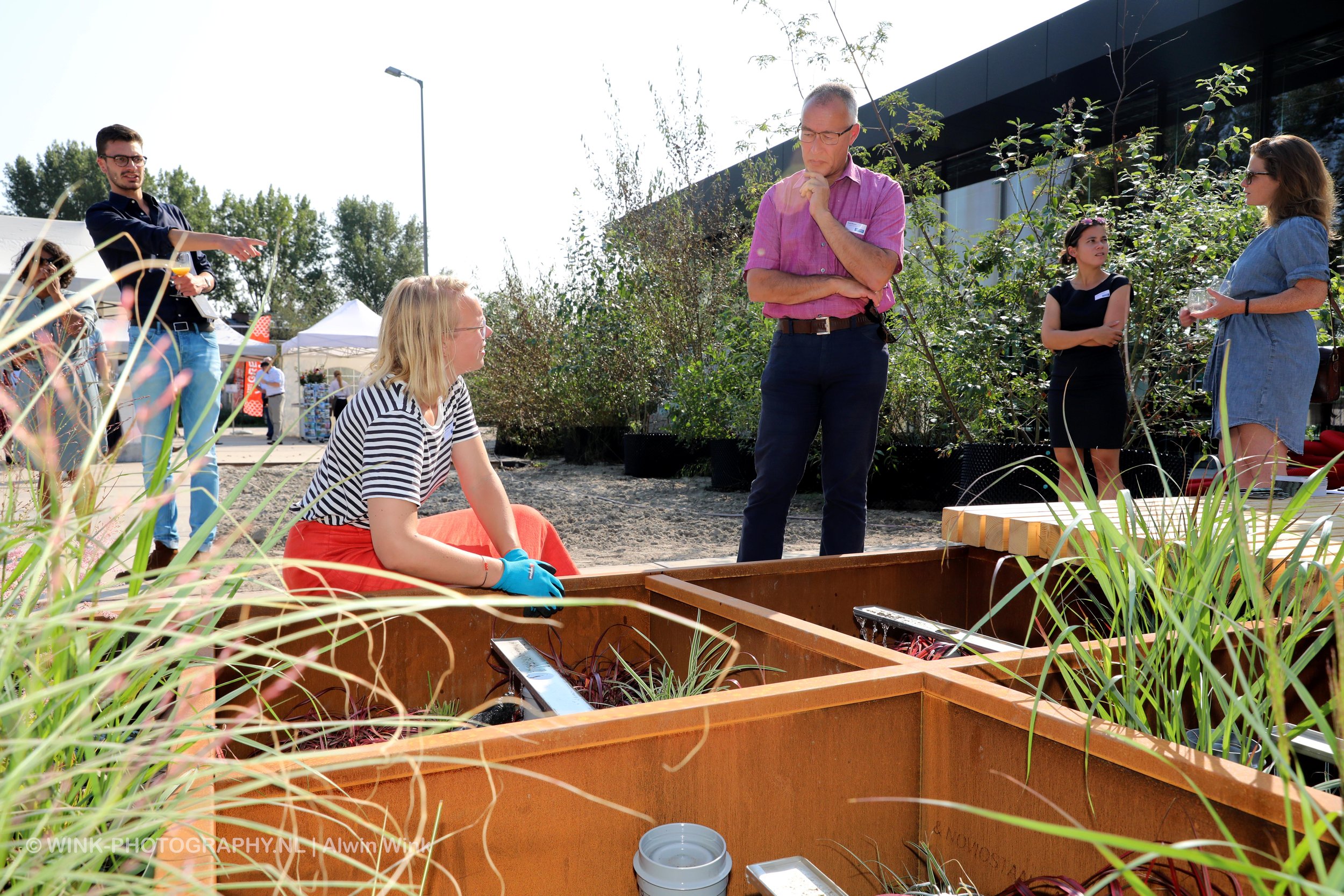-
Customer: Supported by The Green Village as a testing ground for climate adaptation technologies
Partners: VP Delta, The Green Village, Delft University of Technology, Van Gelder
Year: 2020-ongoing -
Collection: 1.600 m²
Buffer: 10 m³
BlueBiofilter: 4 m²
Stored water: 500 m³
Reused water: 500 m³ -
Water use: Irrigation, cooling, toilet flushing (NoxNox House) and demonstration uses
Project phases:
Design
Product Delivery
Operation & Monitoring (Ongoing)
FieldFactors, basado en la naturaleza
Combinamos el diseño, la ingeniería, la ciencia y la tecnología del agua para crear soluciones que hagan sostenible el ciclo urbano del agua.
-
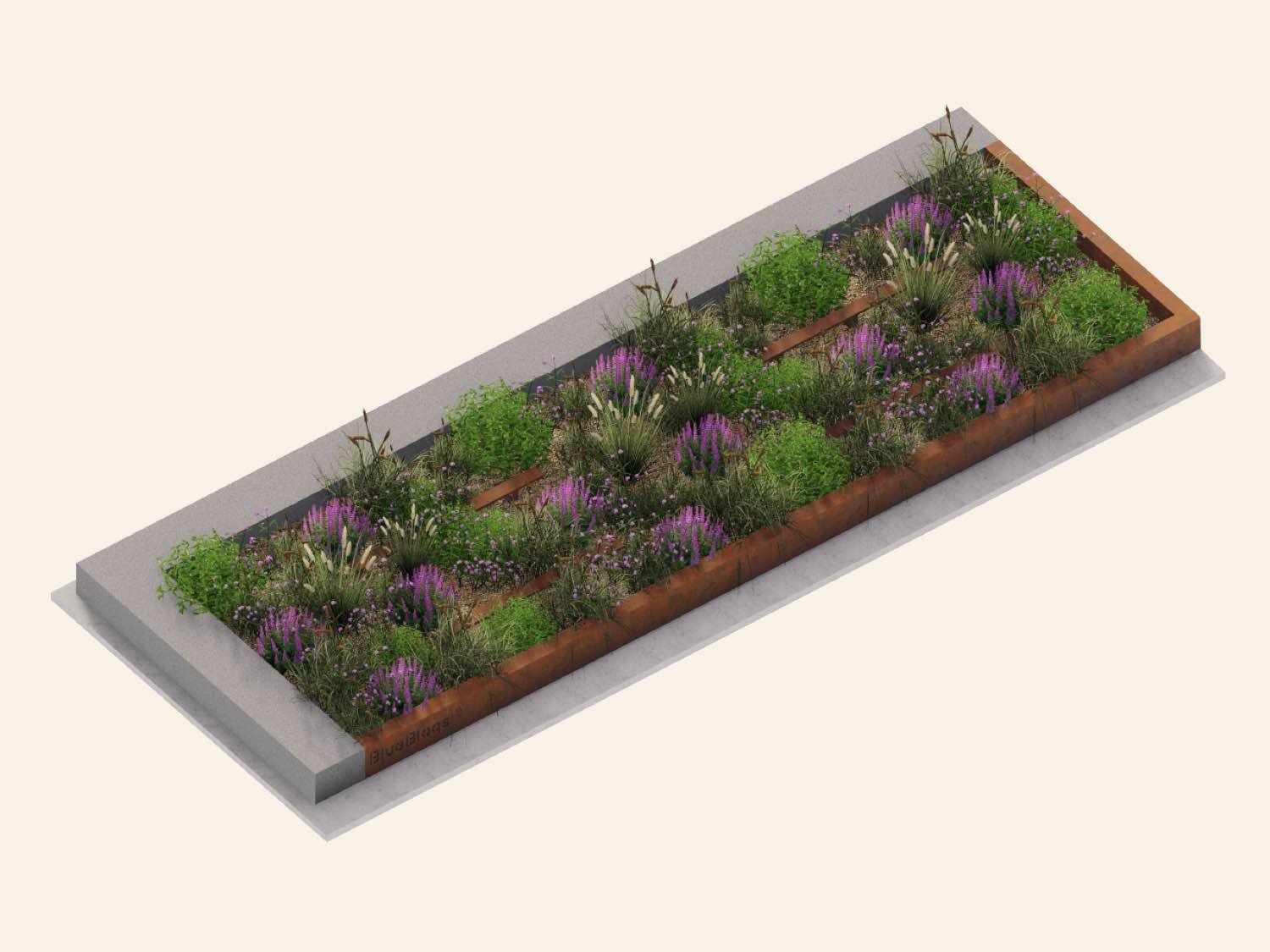
BlueBiofilter
-
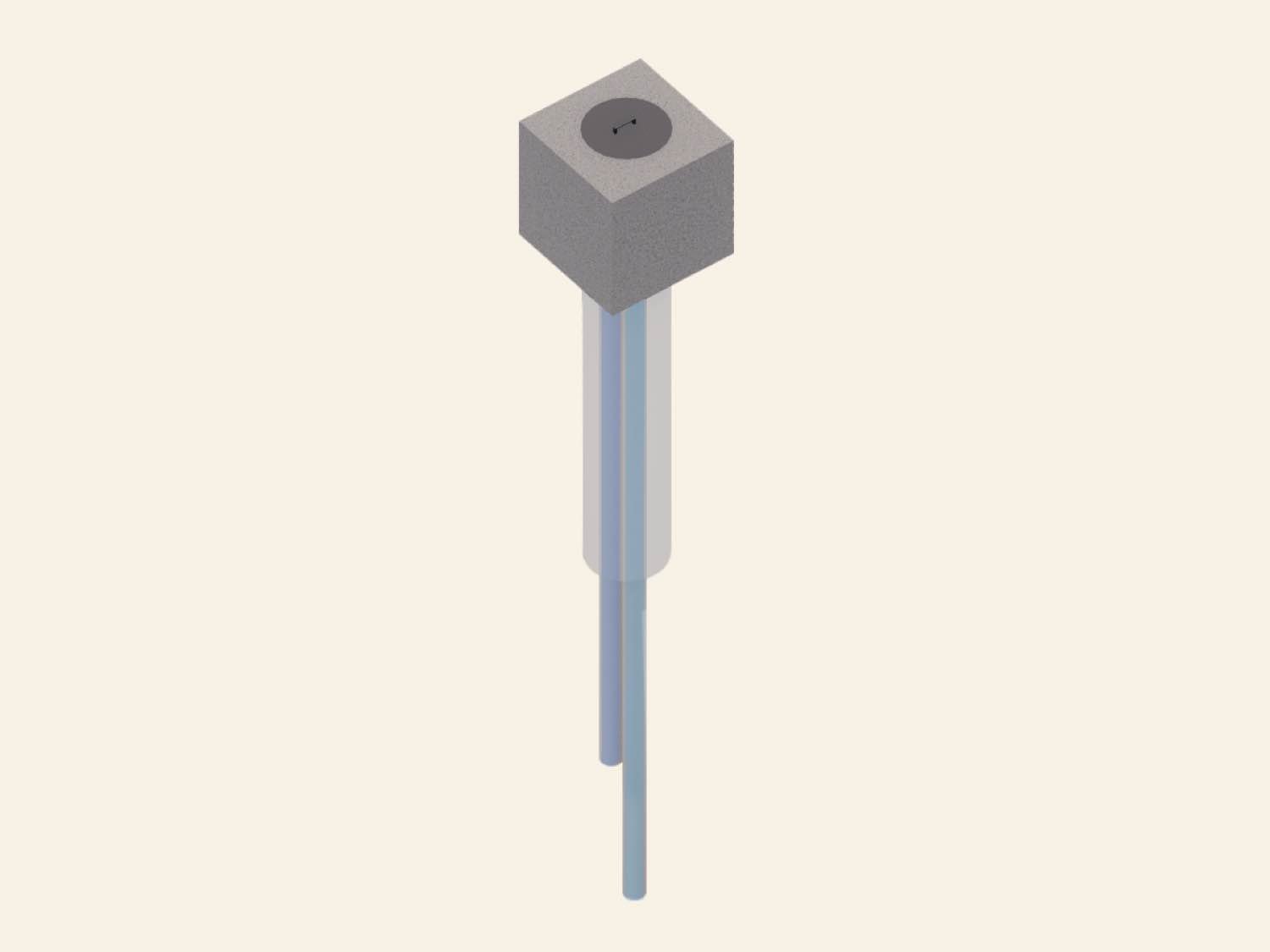
BlueWell
-
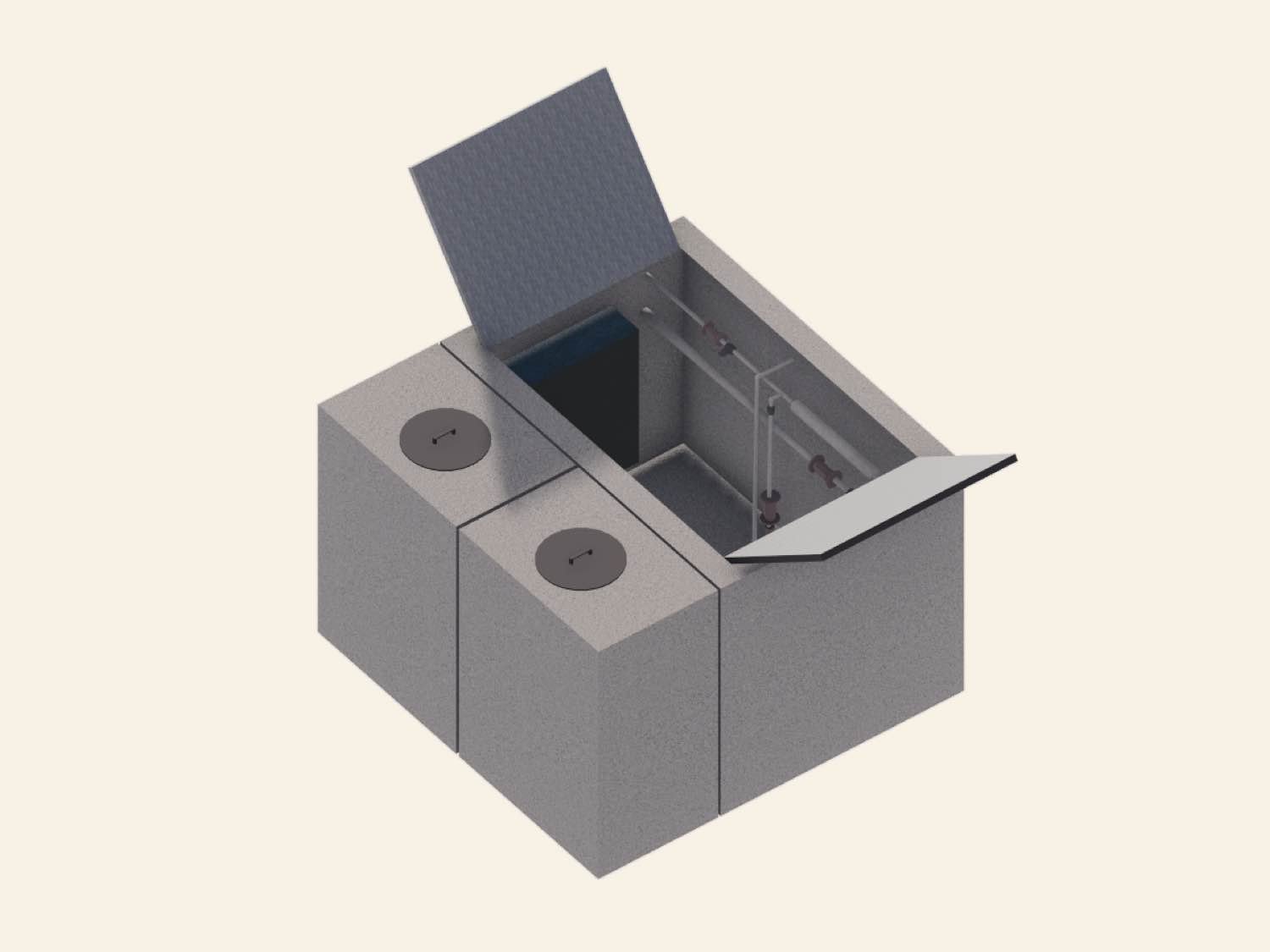
BlueHub
La solución en pocas palabras
-
Por qué
Climate adaptation is not just about managing floods—it also means ensuring water availability during longer periods of drought. Following the success of the Waterstraat project, TU Delft’s Green Village created Het Hitteplein ("Heat Square") to showcase and test innovative solutions to drought and heat stress. BlueBloqs Loop is one of three climate-adaptive technologies being tested in this environment.
This pilot provides a critical opportunity to observe how the BlueBloqs system performs in real urban conditions—offering insight beyond what controlled lab studies can provide. The outdoor setting allows researchers to test how variables such as temperature, sunlight, storm events, and even wildlife (such as nesting geese!) affect the system.
-
Qué
BlueBloqs Loop is a field-scale research and development setup for biofiltration and water reuse. This particular test focuses on the BlueBiofilter, with multiple variations of filter media and design tested in parallel. Four separate one-cubic-meter biofilter units, each with unique configurations, are used to analyze water treatment performance under real-world conditions.
Unlike previous BlueBloqs systems, water is not stored deep underground but just below ground level, enabling easier implementation in diverse locations and creating a more accessible circular water model.
-
Cómo
Rainwater runoff from 1,600 m² of paved and roof surfaces is collected via open stormwater drainage channels. It flows to a 10 m³ HDPE buffer tank installed beneath concrete paving. The water is then evenly distributed into four biofilter cells, each engineered differently for targeted removal of nutrients and metals.
The treated water converges in a final sump tank. From there, it is reused to flush toilets in the NoNo House demonstration facility and is also made available for irrigation, demonstration of other technologies, and general water reuse on site (e.g., filling buckets for showcasing permeable pavements or other heat square features).
This installation also includes a small landscaped green space adjacent to the filters to demonstrate the role of stored water in irrigating urban vegetation, contributing to urban greening and biodiversity enhancement.
"BlueBloqs también es estupendo para la educación: nuestros estudiantes estaban muy dispuestos a medir, modelar y contribuir, en colaboración con FieldFactors, a la mejora del diseño de esta innovadora tecnología de tratamiento de la calidad del agua y de adaptación al clima."
Unique aspects
Real-world testing of biofiltration under environmental exposure (sunlight, temperature, rainfall, wildlife)
Four distinct filter plots with varying media and operational setups
Educational value through collaboration with TU Delft students and international visitors
Public and client demonstration site featured among 100+ innovations at The Green Village
Long-term impact
While this is primarily a research and demonstration project, it helps advance the performance and adaptability of BlueBloqs solutions for real-world deployment. The knowledge gained here supports further innovation in sustainable urban water cycles.
"Tener un piloto de pruebas fuera de la puerta trasera en la Aldea Verde nos permite tener más control y probar cosas nuevas que no podemos hacer inmediatamente con los sistemas a escala real. El personal de la Aldea Verde proporciona un apoyo práctico y logístico crucial para las cuestiones técnicas relacionadas con nuestro piloto de prueba en el campus de la TUD, lo que permite a nuestro equipo centrarse en el desarrollo."


